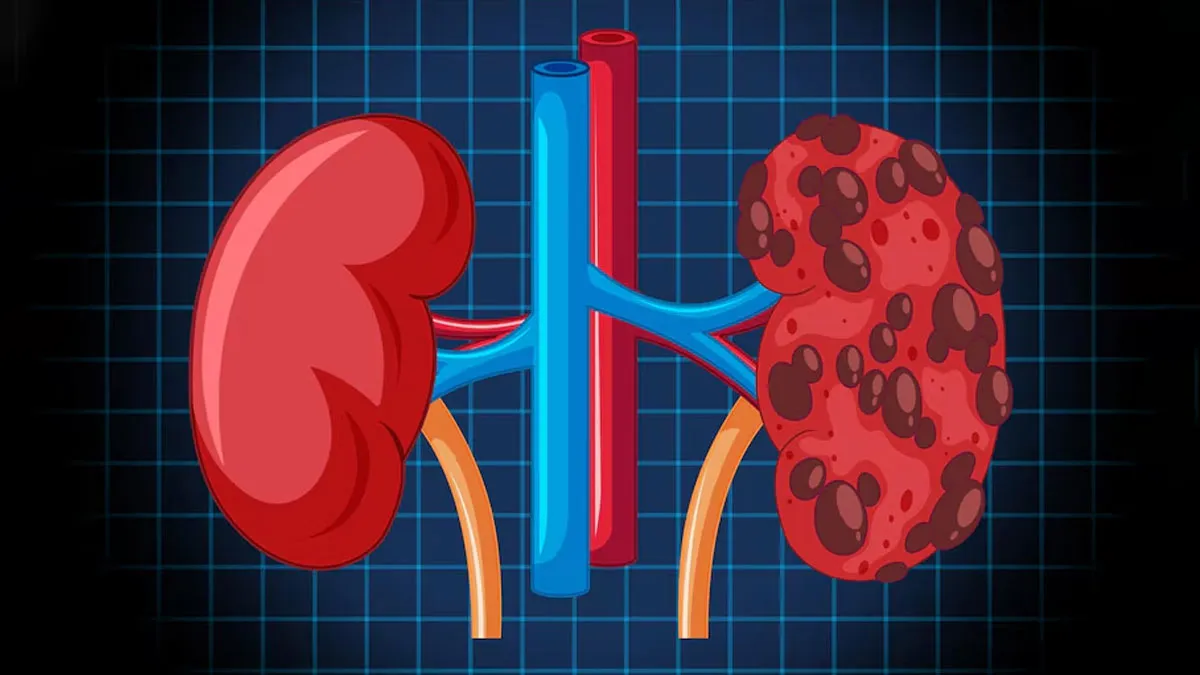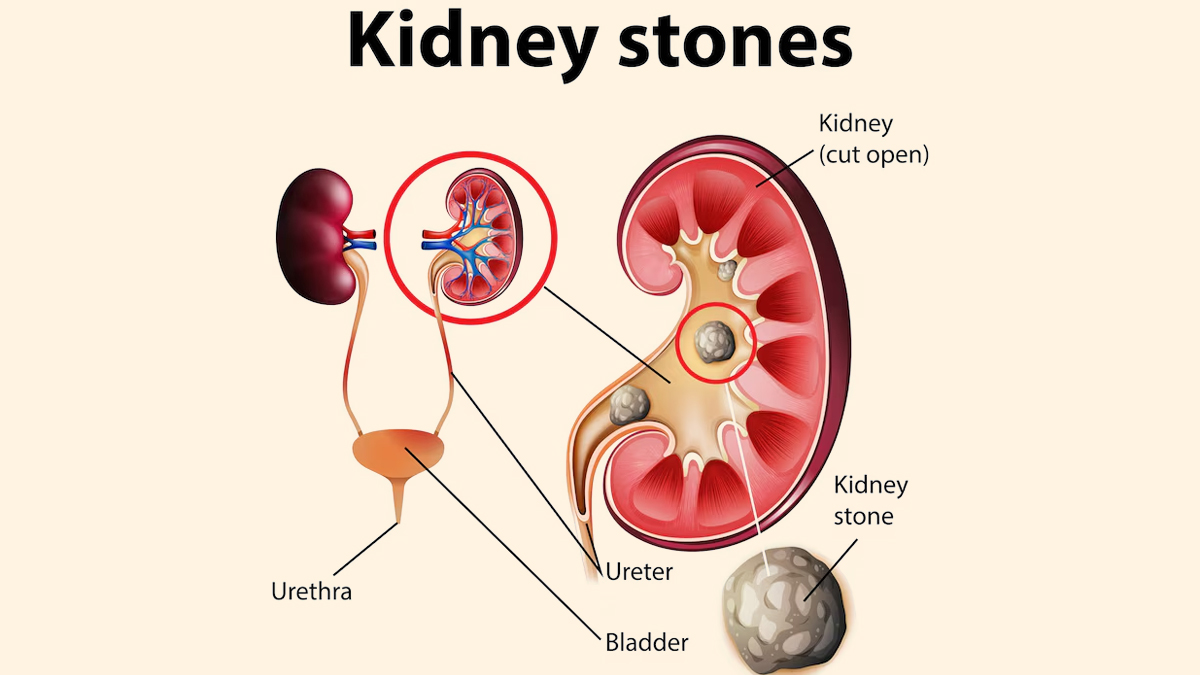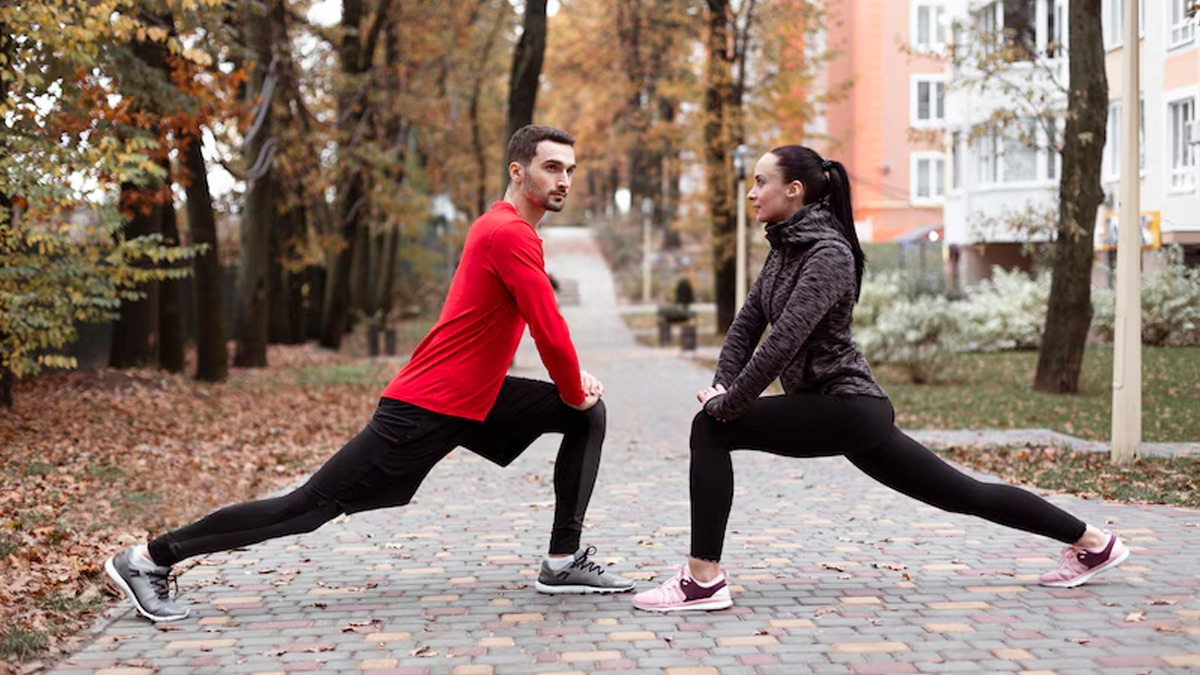
Kidney stones, or renal calculi, are a common health issue that can cause severe discomfort if not addressed promptly. These small, hard mineral deposits form inside the kidneys due to an imbalance of water, salts, and other substances in the urine. During winter, cases of kidney stones tend to spike, making it important to understand the reasons behind this seasonal increase and the preventive measures to avoid pain and discomfort.
Table of Content:-
To understand the causes of the winter spike of kidney stones, OnlyMyHealth team interacted with Dr Amit Kumar, Director and HOD, Nephrology, SHALBY Sanar International Hospitals, Gurugram. He explains, “Kidney stones can cause severe pain, nausea, and vomiting. If not treated on time, they can lead to irreversible damage to the kidneys.”
Why Kidney Stone Cases Increase in Winter

Winter brings with it several lifestyle and physiological changes that contribute to the formation of kidney stones. Dr Amit Kumar highlights key reasons:
Reduced physical activity: “People tend to be less active during the colder months, which can slow down digestion and bowel movements, increasing the risk of kidney stone formation,” says Dr Kumar. Physical inactivity can also lead to changes in urinary flow, a critical factor in preventing stone formation.
Dehydration: According to a study published in the journal of Environmental Health and Preventive Medicine, dehydration is more prevalent in winter as people drink less water, often underestimating their body’s hydration needs. This leads to concentrated urine, creating an ideal environment for kidney stones to form.
Dietary factors: “Consumption of certain food items in excess like nuts and nut products, peanuts, spinach, red meat, chicken, cheese, and other dairy products can increase the risk of stone formation during winters,” warns Dr Kumar. These foods are high in oxalates and proteins, which can contribute to stone formation.
Also read: Are You Prone To Kidney Stones? Expert Advises To Avoid These Foods
Symptoms of Kidney Stones

Kidney stones often present with a range of symptoms, including:
- Sharp pain in the back, side, and groin
- Nausea and vomiting
- Red or brown blood in the urine
- Blockage in the flow of urine
- Pain during urination
If you experience any of these symptoms, it is crucial to seek medical attention promptly. Dr Amit Kumar advises, “Diagnosis is usually performed by ultrasound or CT scan of the abdomen. Urine and blood tests are carried out to check for any infection or metabolic abnormality.”
Ways to Prevent Kidney Stones
Prevention is always better than cure. Here are some tips to reduce the risk of kidney stone formation:

- Stay hydrated: Drinking plenty of water throughout the day helps dilute the urine and reduces the risk of stone formation. Aim for at least 2-3 litres of water daily.
- Maintain a balanced diet: Limit foods high in sugar, sodium, and oxalates. Dr Kumar recommends being cautious with spinach, rhubarb, and other oxalate-rich foods, as well as reducing the intake of animal proteins like red meat and chicken.
- Engage in regular physical activity: Exercise not only improves digestion but also helps maintain a healthy urinary flow, reducing the risk of kidney stone formation.
- Manage your weight: Maintaining a healthy weight is essential as obesity is a known risk factor for kidney stones.
- Limit calcium supplements: While calcium is vital for bone health, excessive intake through supplements can increase the risk of kidney stone formation. Consult your doctor for appropriate recommendations.
Also read: 7 Ways How You Can Prevent Kidney Stones
Managing Pain and Discomfort
If you are already dealing with kidney stones, there are ways to manage the pain and discomfort:
- Pain relief medications: Over-the-counter painkillers can help alleviate pain, but it’s essential to consult a doctor for proper guidance.
- Hydration: Increasing your water intake can help flush out smaller stones naturally.
- Medical intervention: “In critical cases, surgery may be necessary to remove the stone,” notes Dr Kumar. Procedures like lithotripsy or ureteroscopy may be recommended based on the size and location of the stone.
Seeking Medical Attention
Dr Amit Kumar advises, “If you are experiencing any of the above symptoms and have a history of kidney stones, seek immediate help from a medical professional.” Early diagnosis and treatment can prevent complications and ensure better management of the condition.
Conclusion
Winter’s chill may increase the likelihood of kidney stones, but adopting simple lifestyle changes and staying vigilant can make a significant difference. Staying hydrated, eating a balanced diet, and maintaining physical activity are key strategies to prevent kidney stones and enjoy a pain-free season. If symptoms arise, prompt medical consultation is crucial to avoid long-term kidney damage.
Also watch this video
How we keep this article up to date:
We work with experts and keep a close eye on the latest in health and wellness. Whenever there is a new research or helpful information, we update our articles with accurate and useful advice.
Current Version
